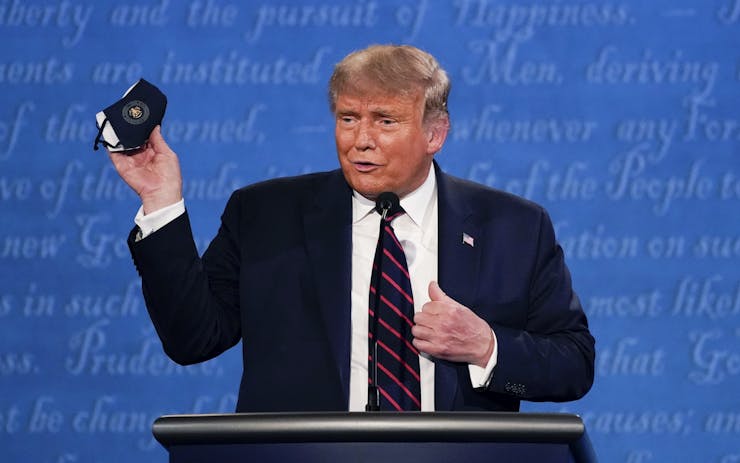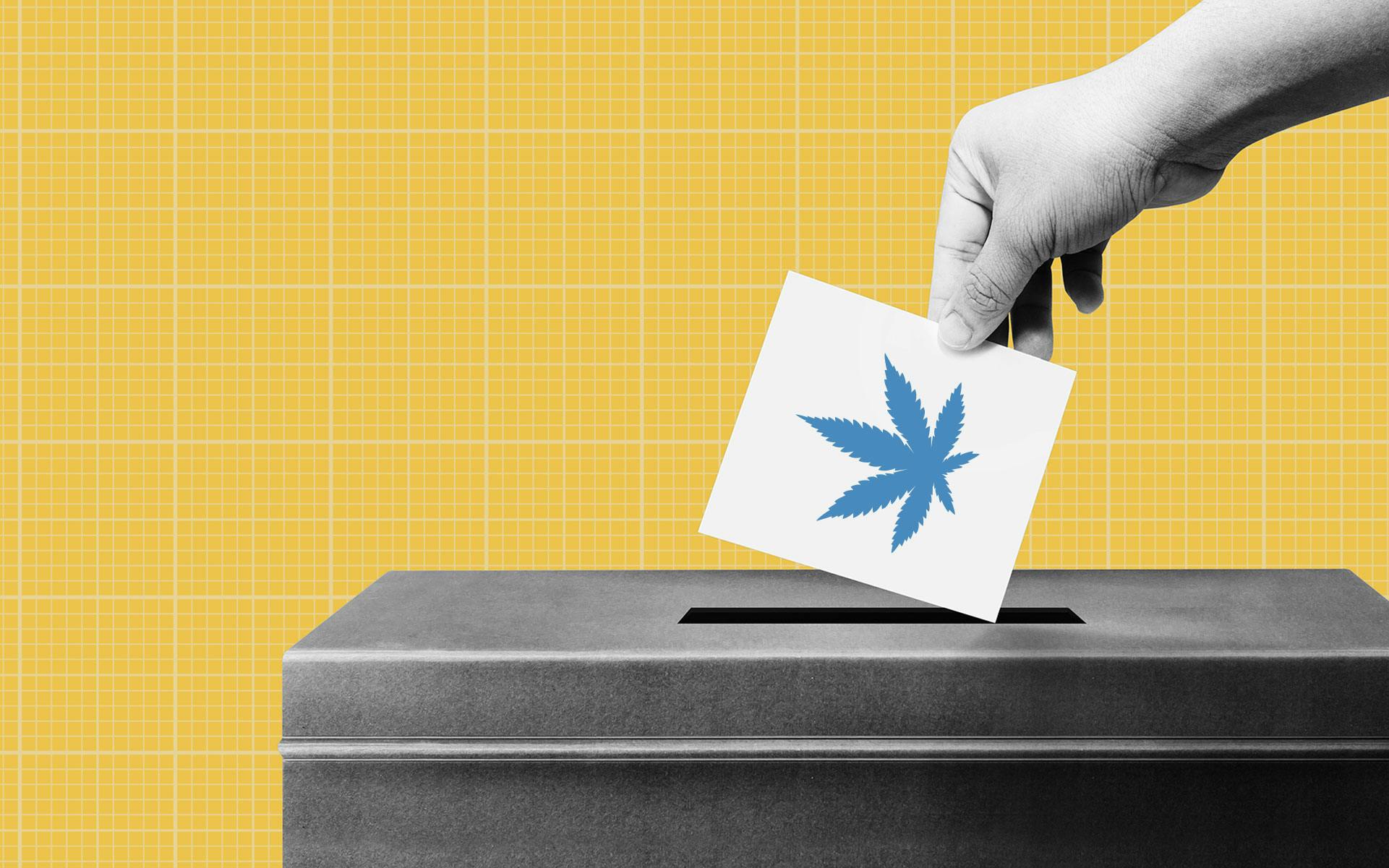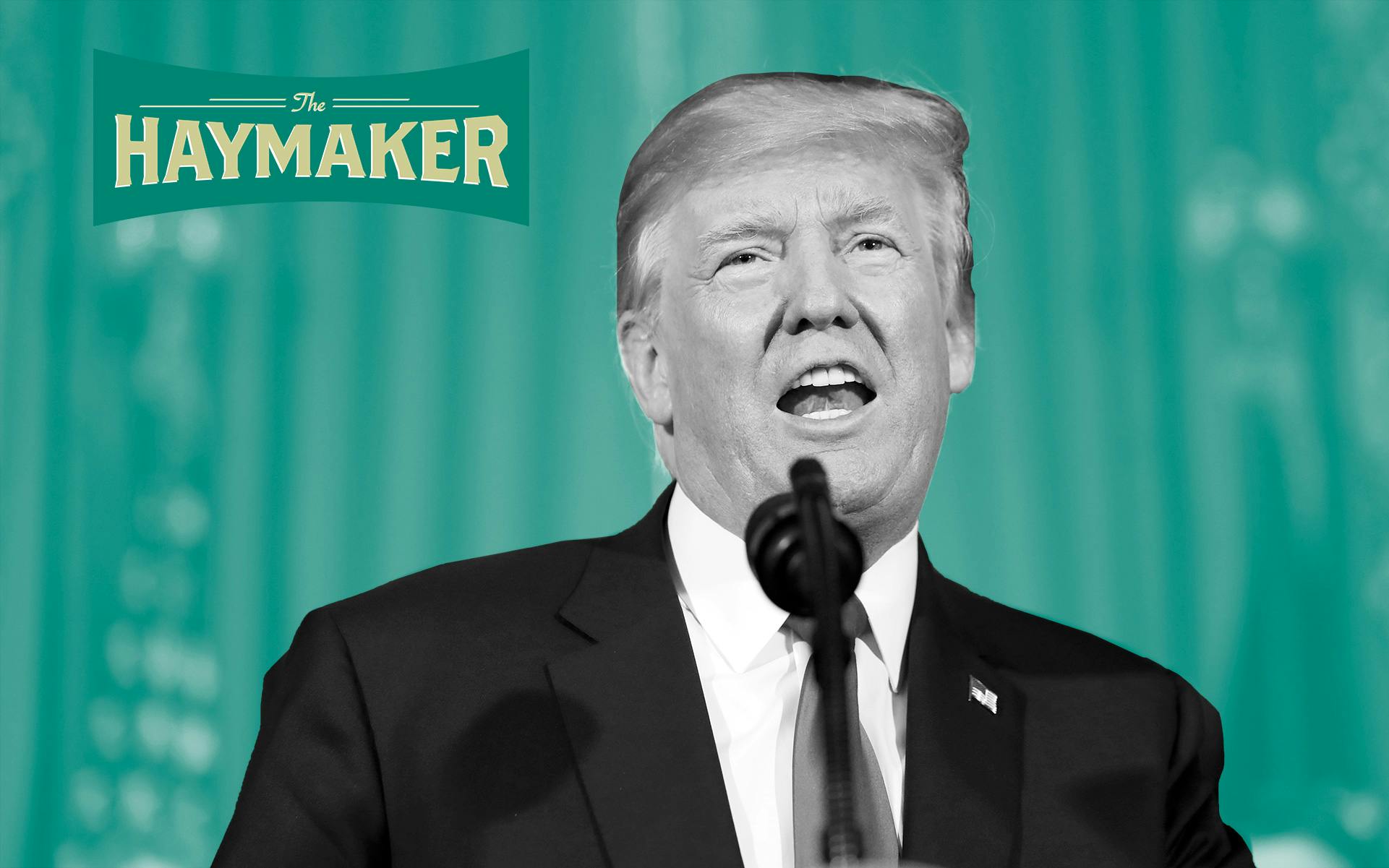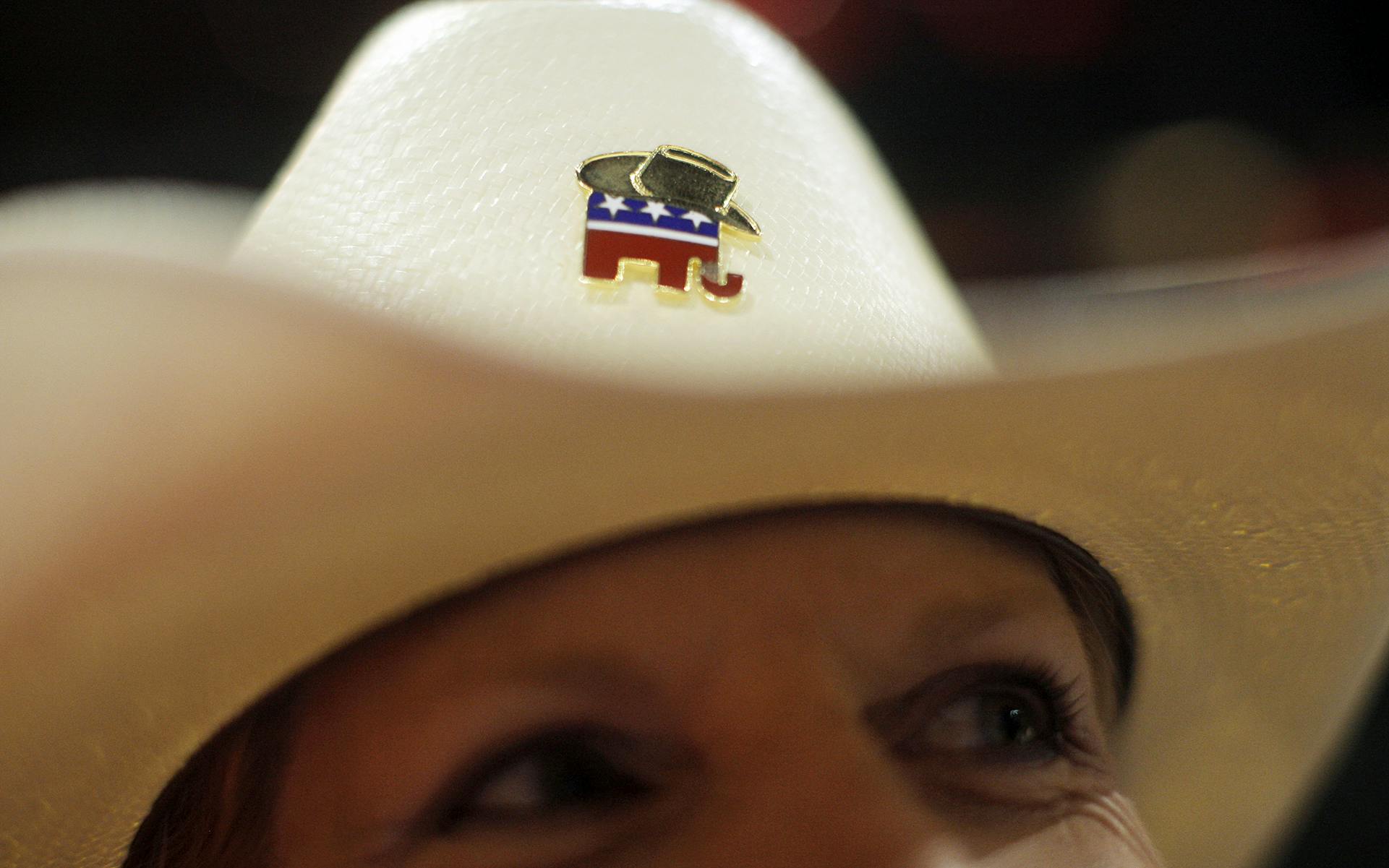Say what you will of Donald Trump, nobody has ever accused the man of being shy. So we must assume that when it comes to cannabis, he’s just fine with the status quo.
Because we’re now more than 2 million weed arrests into Trump’s presidency, and he hasn’t said one word about legalization.
In fact, the Department of Justice under his command is currently waging a stealthy war against medical cannabis patients and the cannabis industry. Trump himself has repeatedly called for the death penalty for drug dealers—and erroneously claims that smoking pot lowers your IQ.
Though that’s not why he’s opposed to letting “we the people” vote to end prohibition.
“Please don’t put marijuana on the ballot”
“The next time you run, please don’t put marijuana on the ballot at the same time you’re running.” That was President Trump’s recent advice to former Wisconsin Gov. Scott Walker.
Trump claimed legalization measures “brought out a million voters that nobody ever knew were coming out.”
Walker lost his governorship in the Nov. 2018 election by a razor-thin margin, a defeat Trump attributed to the 16 Wisconsin counties that voted on pro-cannabis referendums on that same ballot.
Speaking to his supporters at a campaign rally, Trump claimed those referendums “brought out a million voters that nobody ever knew were coming out.”
Walker couldn’t stop the vote
That analysis contains a grain of truth, buried beneath two large factual errors.
First, Trump implies that Scott Walker either created those Wisconsin cannabis referendums himself or had the power to stop them. In fact, they were actually put on the ballot by the tireless efforts of grassroots activists, who drafted the referendums and collected the required signatures to put them on the ballot.
And as for those supposed million voters nobody saw coming?
Only 2.7 million Wisconsinites cast ballots in the entire election. Yes, one million of them voted in the 16 counties with a cannabis referendum—but that’s the total number of voters in those counties, whether they cared about cannabis or not.

Wisconsin still can’t even pass medical legalization
If 16 non-binding countywide cannabis initiatives were really capable of inspiring one million non-voters to vote, we’d all be living in a far more weed-friendly world. Certainly cannabis would be legal in Wisconsin by now.
As it is, the state does not even have a medical cannabis law.
And so, cancer patients remain subject to arrest for taking a few puffs to get through chemo.
That doesn’t bother President Trump. His only takeaway from a huge majority of Wisconsinites voting for legalization is that having cannabis on the ballot might hurt Republicans’ election chances.
And should therefore be stopped.
Cannabis voters did sway Wisconsin’s 2018 ballot
We know a million people didn’t show up in Wisconsin just to vote on cannabis, but how many did? And is there any truth to Trump’s claim that Scott Walker would still be governor today if it weren’t for those meddlesome referendums?
After carefully crunching the numbers, a detailed analysis from Wisconsin Patch determined that yes, cannabis voters did likely swing the election:
Wisconsin Patch studied the voter turnout in each of the 16 counties where pro-marijuana ballot measures passed and determined that while Walker enjoyed more support in many of the 16 counties when compared with his last election in 2014, his totals were dwarfed by the gains Democrats enjoyed in 2018.
To be precise, Walker collected 3,314 more votes in those counties than when he was elected Governor in 2014, but still lost because his Democratic opponent earned 143,584 more votes there than the last time around.
Which means that when you combine an incredibly tight race with that huge jump in voter turnout and the popularity of those cannabis initiatives (all 16 passed), it does seem very likely that cannabis-inspired voters made the difference.
Cannabis coattails
Support for legalization is quantifiably much higher among Democrats than Republicans (76% vs. 51%), so assuming an initiative to legalize cannabis does bring out voters who’d otherwise stay home, having cannabis on the ballot would presumably translate into a net gain for Democratic candidates overall.
John Hudak of the Brookings Institute has argued such cannabis coattails are a real and significant phenomenon.
In 2012, after Colorado and Washington made history as the first two states to legalize cannabis, Hudak analyzed data from that election and found that while nationally voter demographics looked “fairly stable” compared to four years prior, the electorate that approved legalization in Colorado and Washington was actually significantly younger and more liberal—two voting blocks that are strongly in favor of cannabis. Hudak wrote:
Voter turnout in Colorado changed dramatically between 2008 and 2012. In 2008, self-described liberals composed 17 percent of the electorate and that exploded to 28 percent in 2012.
With marijuana legalization on the ballot in the Rocky Mountain State, more young people turned out, too. In 2008, 18-29 year olds made up 14 percent of the electorate, that increased to 20 percent in 2012. The changes were even more significant among 18-24 year olds.
With legalization on the ballot, they made up 12 percent of the electorate compared to just 5 percent four years prior. And Washington saw many of the same changes with their legalization measure.
Other election data experts have attempted to pour cold water on the notion that Democrats can use cannabis as a “wedge issue” the way conservatives once pushed their base to the polls by running initiatives banning gay marriage.
But even the cannabis coattails theory’s detractors concede that there’s at least some small advantage to Democrats when cannabis makes the ballot.
Which explains why—fuzzy math aside—President Trump not only opposes cannabis legalization, he opposes letting you vote on it.

Trump against legalization
In theory, President Trump should have no say whatsoever over whether citizens in Wisconsin or any other state get to vote on cannabis legalization. There are limits to even this President’s power.
Until there aren’t.
The fact is, President Trump seems to have a problem with any voter who doesn’t vote for him, whether they smoke pot or not. And he would clearly rather let the War on Marijuana go on forever and ever—millions and millions of arrests—than risk losing one vote.
He told us so himself.
So if cannabis is important to you, and you support this President, you must come to terms with the fact that Donald Trump holds your constitutional right to self-government to be subject to his personal approval. For the most self-serving of reasons.
It’s one thing to disagree on the policy, which in the case of the President’s ideological opposition to legalization is bad enough. It’s far, far worse to deny the citizenry its primary tool of democracy as part of a lawless push to maintain power at all costs.
Citizens in Arizona, New Jersey, Montana, SouthDakota, and Mississippi will vote on cannabis this November.
Check out Leafly’s official guide to cannabis and the 2020 Election.
And visit Cannabis Voter Project to check your voter registration status today.








